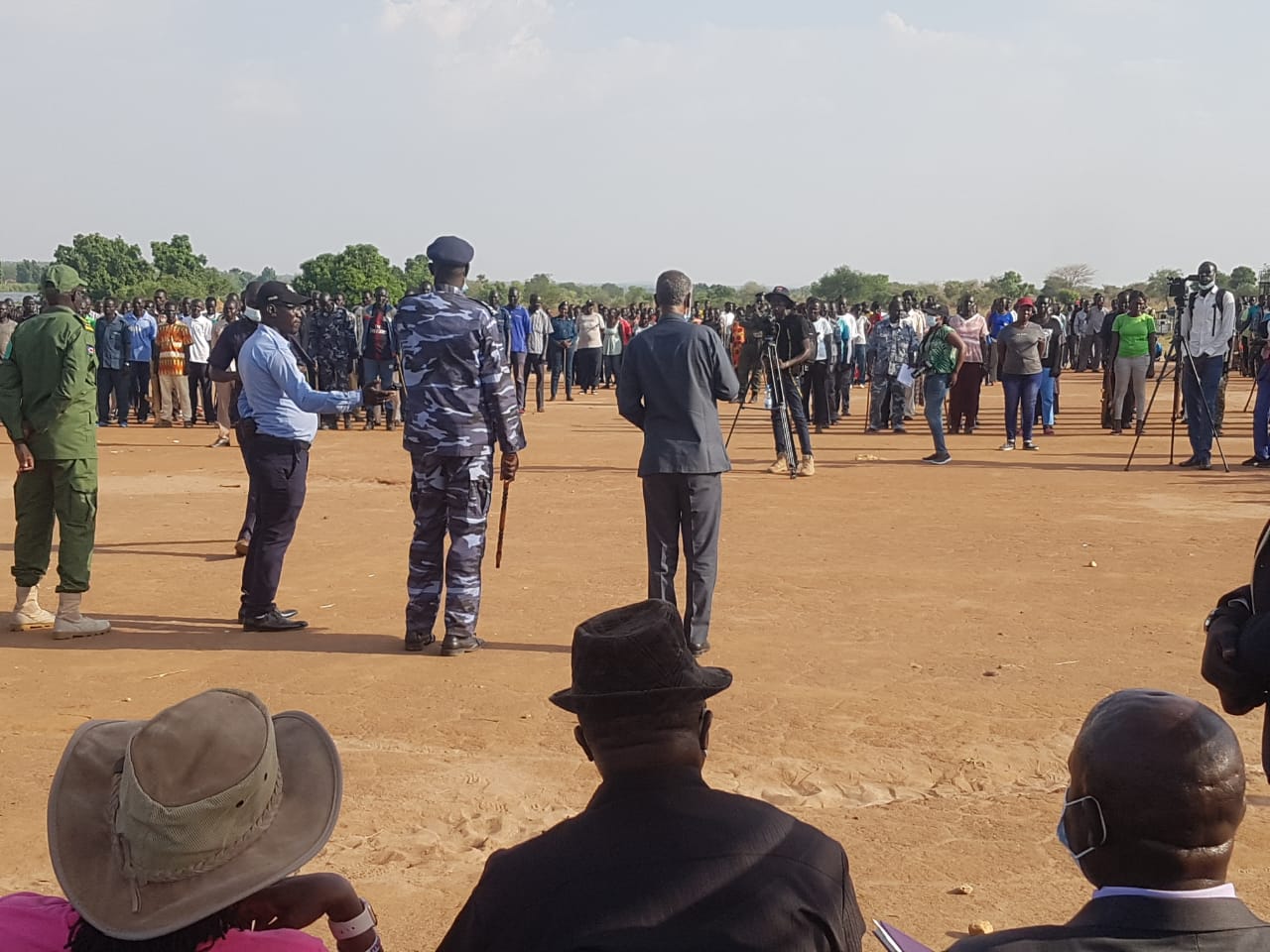South Sudanese parties to the 2018 revitalized peace agreement have agreed on the formation of the long-awaited unified army command charged with superintending over the yet to be graduated 83,000 unified forces.
Martin Elia Lomuro, Minister of Cabinet Affairs revealed that the deal reached by the parties ends the long-standing stalemate over sharing of the ratios within the military command structure.
“We have now come to the correct approach and it is agreed that Sudan People’s Liberation Movement-In Government takes 60 percent and the opposition takes 40 percent,” Lomuro told journalists in Juba over the weekend.
President Salva Kiir and his First Vice President Riek Machar, who leads the largest opposition group SPLM-in opposition in the coalition government have been in disagreement over positions in the unified army command.
The parties are supposed to graduate the unified forces that include police, army, intelligence and wild life officers to take charge of security during the ongoing transitional period.
Kiir has before blamed the arms embargo imposed on South Sudan by the United Nations for delaying the graduation of unified forces, but this has been countered by security experts who argue that the youngest nation is already awash with small arms.
Lomuro disclosed that the new arrangement will pave way for the graduation of the unified forces.
“Now that we have agreed on the sharing of (army) command structure, we can expeditiously move on now to graduate the unified forces so that they can be deployed even if we don’t have guns,” said Lomuro.
South Sudan descended into conflict in December 2013 following political disagreement between President Salva Kiirand his then deputy Riek Machar leaving soldiers loyal to the respective leaders to fight.
The conflict killed tens of thousands and displaced over two million people both internally and externally.
The parties signed the 2015 peace deal in Ethiopia that collapsed in the aftermath of renewed fighting in July 2016, leading to the regional body Intergovernmental Authority on Development (IGAD) to renegotiate the 2018 revitalized peace deal.










